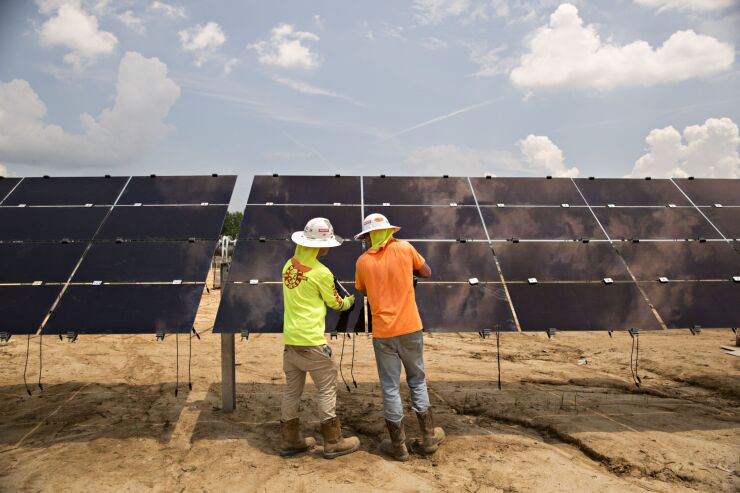The Treasury Department and the Internal Revenue Service issued guidance Thursday for producers of clean electricity and other forms of renewable energy if they begin constructing projects next year that fall short of the necessary requirements for domestically manufactured components.

The Inflation Reduction Act of 2022 aimed to incentivize the production of green energy in the U.S., providing rules that companies need to satisfy to receive bonus tax credit amounts for satisfying domestic content requirements when it comes to steel, iron and manufactured products in qualified facilities and energy projects placed in service after Dec. 31, 2022. The IRA also added new Sections 45Y and 48E to the Internal Revenue Code, providing similar rules for domestic content bonus credit amounts with respect to qualified facilities, and qualified investments in qualified facilities or energy storage technologies, placed in service after Dec. 31, 2024.
The phaseouts for elective payment and the statutory exception apply to the following credits:
- Renewable Electricity Production Credit (Section 45);
- Clean Electricity Production Credit (Section 45Y);
- Energy Credit (Section 48); and
- Clean Electricity Investment Credit (Section 48E).
The applicable entities are mainly tax-exempt organizations, along with state and local governments, Indian tribal governments, Alaska Native Corporations, the Tennessee Valley Authority or rural electric cooperatives.
The rules generally define "domestic content" as steel, iron or manufactured products that are manufactured or produced in the U.S. Typically, unless a statutory exception is applicable, the phaseouts for elective payment apply to projects that produce one or more megawatts of electricity and that fail to satisfy this domestic content requirement.
Many companies have been running into roadblocks in meeting the domestic content requirements as much of the U.S. manufacturing base continues to rely on foreign sources for raw materials and components. In a relatively new area like renewable energy production, the U.S. has a great deal of catching up to do with countries that have been leading the way for years.
The notice asks for feedback to help develop future proposed regulations. In addition to general comments, the Treasury Department and the IRS would like to receive comments that discuss the number of qualified facilities that are anticipated to be impacted by the phaseouts for elective payment, factors in defining overall costs of construction, and any documentation and substantiation requirements. Written comments should be sent by Feb. 26, 2024. The subject line for the comments should include a reference to Notice 2024-09. Comments can be sent electronically via the





